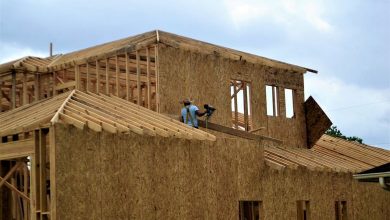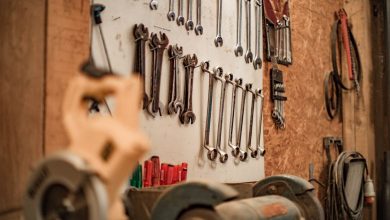Prepare Your Central Heating System for Winter: A Comprehensive Guide
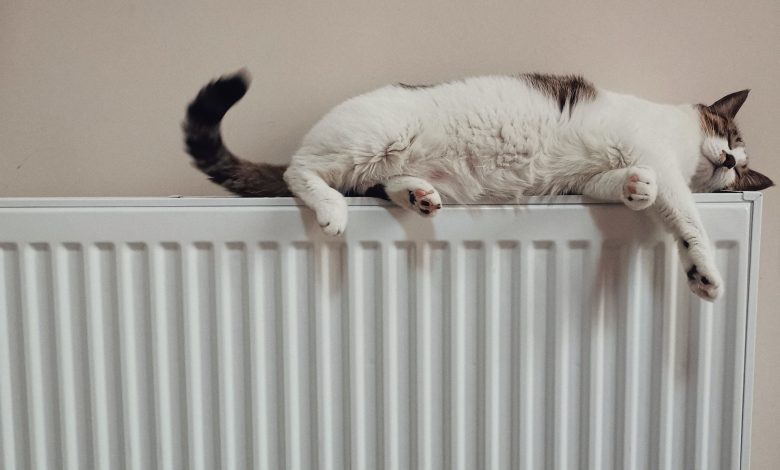
As the winter season approaches, it’s important to ensure that your central heating system is ready to keep your home warm and comfortable. A properly maintained central heating system can save you money on energy bills, prevent breakdowns and extend the lifespan of your system. In this article, we’ll go over some tips to prepare your central heating system for the colder months ahead.
The first step in preparing your central heating system for winter is to schedule a maintenance check with a qualified heating engineer. They will inspect your system for any potential issues, clean and replace filters, check for leaks and ensure that all components are working efficiently. This will not only prevent any unexpected breakdowns during the winter months but also help your system to operate at its best, saving you money on energy bills.
Assessing Your Central Heating System
Before the winter season arrives, it’s important to assess your central heating system to ensure it’s in good condition and ready to keep your home warm. Here are some key steps to take:
Evaluating Boiler Performance
Your boiler is the heart of your central heating system, so it’s essential to check its performance before the cold weather sets in. Start by checking the boiler pressure and ensuring it’s within the recommended range. If it’s too high or too low, you may need to adjust it.
Next, check for any leaks or signs of corrosion on the boiler. If you notice any issues, it’s best to call a qualified engineer to carry out repairs or replacements.
Finally, consider having your boiler serviced by a professional to ensure it’s functioning efficiently and safely.
Checking Radiators and Pipes
Radiators and pipes are essential components of your central heating system, and it’s important to check them for any issues. Start by bleeding your radiators to remove any trapped air, which can cause cold spots and reduce efficiency.
Next, check the radiators for any leaks or signs of corrosion. If you notice any issues, it’s best to replace them before the winter season.
Finally, check the pipes for any signs of damage or leaks. If you notice any issues, it’s best to call a qualified engineer to carry out repairs or replacements.
Regular maintenance of your central heating system can help to prevent breakdowns and ensure it’s functioning efficiently. By taking these steps to assess your system before winter arrives, you can enjoy a warm and comfortable home throughout the colder months.
Preventative Maintenance Steps
To ensure your central heating system is ready for winter, there are a few preventative maintenance steps you should take. These steps will help prevent future issues and keep your heating system running efficiently.
Bleeding Radiators
Bleeding your radiators is an important step in maintaining your central heating system. Over time, air can become trapped in the radiators, which can lead to cold spots and reduced heat output. Bleeding your radiators will release any trapped air and allow the hot water to circulate more effectively.
To bleed your radiators, follow these steps:
- Turn off your heating system and wait for the radiators to cool down.
- Locate the bleed valve on each radiator. This is usually found at the top of the radiator on one of the ends.
- Place a towel or container underneath the valve to catch any water.
- Use a radiator key or screwdriver to turn the valve anti-clockwise. You should hear a hissing sound as the air is released.
- Once water starts to come out of the valve, tighten it back up.
Cleaning and Replacing Filters
Filters play an important role in maintaining your central heating system. They help to remove dirt, debris, and other contaminants from the water, which can cause damage to your boiler and reduce efficiency. It’s important to clean or replace your filters regularly to ensure they are working effectively.
To clean or replace your filters, follow these steps:
- Turn off your heating system and allow it to cool down.
- Locate the filter on your boiler. This is usually found near the bottom of the boiler.
- Remove the filter and clean it with a soft brush or replace it with a new one.
- Reinstall the filter and turn your heating system back on.
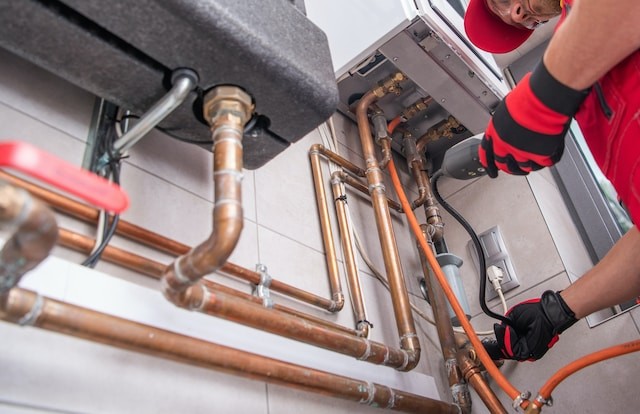
Boiler Servicing
Regular boiler servicing is essential for maintaining your central heating system. A qualified engineer can identify and fix any issues before they become major problems, ensuring your system is running efficiently and safely. For Reliable Boiler Servicing Engineers Click Here.
During a boiler service, the engineer will:
- Check for any signs of wear and tear or corrosion.
- Inspect the flue and ventilation system.
- Check the boiler controls and safety devices.
- Clean and service the boiler components, including the burner, heat exchanger, and pilot light.
By following these preventative maintenance steps, you can help keep your central heating system running smoothly throughout the winter months. Regular maintenance and repair can help prevent costly breakdowns and ensure your system is operating at maximum efficiency.
Upgrading Your Heating Controls
If you want to improve your central heating system’s efficiency, upgrading your heating controls is a great place to start. With the latest technology, you can now control your heating remotely, set schedules, and monitor energy consumption. In this section, we will discuss two ways to upgrade your heating controls: installing smart thermostats and adjusting thermostat settings for cold weather.
Installing Smart Thermostats
Smart thermostats are a great investment for your home. They allow you to control your heating remotely, so you can turn it on or off from your smartphone or tablet. This means you can adjust the temperature of your home even when you’re not there, which can save you money on your energy bills.
Smart thermostats also learn your heating habits and can adjust the temperature accordingly. For example, if you’re always out of the house at a certain time, the thermostat will turn off the heating to save energy. Some models even have sensors that detect when you’re home and adjust the temperature accordingly.
Thermostat Settings for Cold Weather
If you don’t want to invest in a smart thermostat, you can still save money on your energy bills by adjusting your thermostat settings for cold weather. When it’s cold outside, you want to make sure your home is warm and comfortable, but you don’t want to waste energy.
The ideal temperature for your home in winter is between 18°C and 21°C. You can save money by setting your thermostat to the lowest comfortable temperature and wearing warm clothing. You can also save energy by turning down the temperature when you’re not at home or when you’re sleeping.
In conclusion, upgrading your heating controls can save you money on your energy bills and improve the efficiency of your central heating system. Whether you choose to install a smart thermostat or adjust your thermostat settings for cold weather, you can make a significant difference in your energy consumption.
Insulation and ProtectionInsulating Pipes and Tanks
Insulating your pipes and tanks is essential to prevent them from freezing during the cold weather. Frozen pipes can cause significant damage to your heating system and can be costly to repair. Insulating your pipes and tanks will help to keep them warm and prevent them from freezing.
There are various types of insulation available, including foam insulation and pipe lagging. Foam insulation is easy to install and is ideal for insulating pipes in hard-to-reach areas. Pipe lagging is a more traditional form of insulation and is suitable for pipes that are easily accessible.
Sealing Damp and Drafts
Damp and drafts can cause your heating system to work harder than it needs to, resulting in higher energy bills. Sealing damp and drafts will help to keep your home warm and reduce your energy bills.
To seal damp and drafts, start by inspecting your gutters and making sure they are clear of debris. Blocked gutters can cause water to overflow and seep into your home, causing damp. Next, check for any gaps or cracks around windows and doors and seal them with caulking or weatherstripping. Finally, check for any damp patches on walls or ceilings and address the cause of the damp.
By insulating your pipes and tanks and sealing damp and drafts, you can ensure that your central heating system is well-protected and ready for the winter months.
Optimising Energy Efficiency
To ensure that your central heating system is energy efficient during the winter months, there are a few steps you can take. These steps will help you save money on your energy bills, reduce your energy usage and keep your home warm and comfortable.
-
Install a Smart Thermostat: A smart thermostat can help you control your central heating system more efficiently. It can learn your daily routine and adjust the temperature accordingly. This means that you can reduce your energy usage when you’re not at home, and have your home warm and comfortable when you return. Smart thermostats can also be controlled remotely, so you can adjust the temperature from your phone or tablet.
-
Service Your Central Heating System: A well-serviced central heating system is more energy efficient. Regular servicing can help identify any issues and ensure that your system is running efficiently. This will help you save money on your energy bills and reduce your energy usage.
-
Insulate Your Home: Insulating your home can help reduce heat loss and keep your home warm. This means that your central heating system won’t have to work as hard to maintain the temperature, which will save you money on your energy bills. Insulating your hot water system can also help reduce heat loss and save you money.
-
Use a Timer: Using a timer on your central heating system can help you control when your heating comes on and off. This means that you can reduce your energy usage when you’re not at home or when you’re asleep. You can also set the temperature lower during the night, as you’ll be under blankets and won’t need as much heat.
By following these steps, you can optimise the energy efficiency of your central heating system and reduce your energy costs.
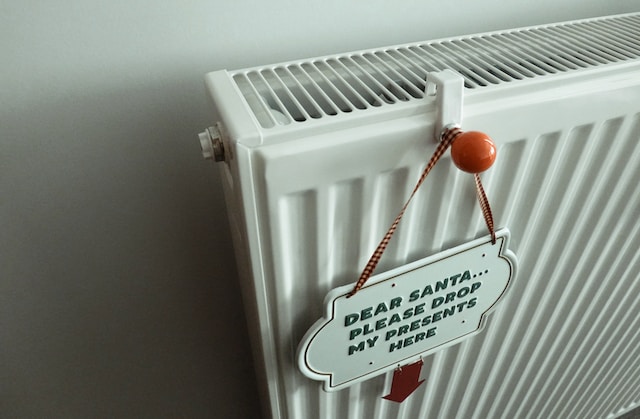
Frequently Asked Questions
How can I bleed my radiators to ensure optimal heating efficiency?
Bleeding your radiators is a simple process that can help to improve the efficiency of your central heating system. To do this, turn off your heating system and wait for the radiators to cool down. Then, locate the radiator valve and use a radiator key to open it slightly. You should hear a hissing sound as the air escapes. Once water starts to flow steadily, close the valve and move on to the next radiator.
What steps should I follow to ready my boiler for the colder months?
Before the onset of winter, it is important to service your boiler to ensure that it is in good working order. This includes cleaning the boiler and checking the pressure levels, as well as inspecting the flue and ventilation systems. If you are unsure about how to service your boiler, it is recommended that you seek professional help.
Which temperature setting is recommended for central heating during winter for both comfort and energy efficiency?
A temperature of around 18-21°C is considered comfortable for most people during the winter months. However, it is important to remember that setting your thermostat too high can lead to increased energy bills. It is recommended that you set your thermostat to the lowest comfortable temperature and use additional layers of clothing or blankets to stay warm.
What maintenance checks are crucial for central heating systems before the onset of winter?
Before winter, it is important to check your central heating system for any leaks or damage. It is also recommended that you clean or replace your air filters, as this can help to improve the efficiency of your system. Additionally, you should check that all of your radiators are heating evenly and that your thermostat is working correctly.
Can you provide guidance on protecting pipes from freezing as temperatures drop?
To protect your pipes from freezing during the winter months, it is recommended that you insulate them with foam lagging. You should also ensure that any external pipes are drained and turned off, and that any gaps or cracks in your walls or windows are sealed to prevent cold air from entering your home.
What are the signs that my central heating system may need professional servicing before winter?
If your central heating system is making unusual noises, emitting strange smells, or failing to heat your home evenly, it may be time to seek professional help. Additionally, if your energy bills have increased significantly or you have noticed a decrease in the efficiency of your system, it is recommended that you have it serviced by a qualified professional.

